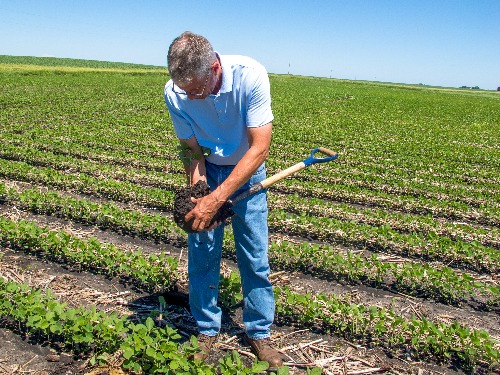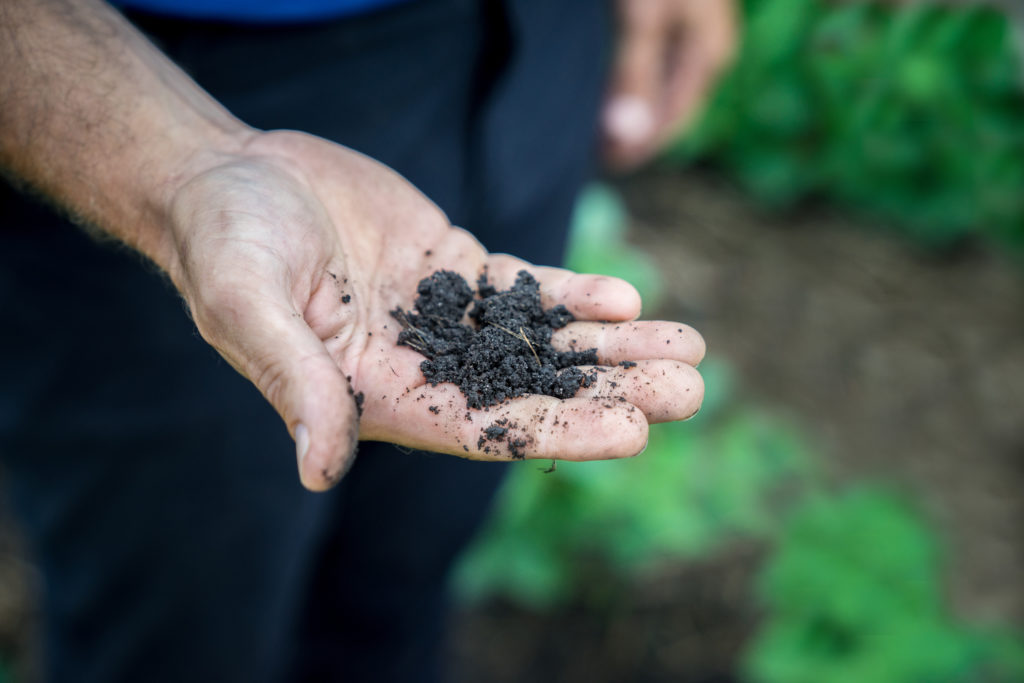Last updated on February 14th, 2024
This blog originally appeared on Environmental Defense Fund’s Growing Returns blog.

Findings from a recent Soil Health Institute study add to growing evidence that soil health practices can provide financial benefits to farmers.
The Soil Health Institute, with support from Cargill, interviewed 100 farmers across nine states to measure the farm budget impacts of soil health practices.
“I believe this work is a critical area and critical question that we need to better address as we look at scaling up of soil health principles,” said Ryan Sirolli, Global Row Crop Sustainability Director at Cargill, during a webinar hosted by the Soil Health Institute.
The Institute used a partial budget analysis, asking farmers about yield changes and specific cost changes directly associated with adopting soil health practices.
“It was important that they have experience”
The farmers participating in the study mostly produced corn and soybeans and utilized conservation tillage and cover crop soil health practices — all having more than five years’ experience with these practices.
“We felt it was important that they have experience in these soil health practices for at least five years, because it often takes some time before seeing benefits with these practices,” said Dr. John Shanahan, agronomist and project manager at the Soil Health Institute.

It turns out that experience pays off.
Across the 100 participating farms, the Soil Health Institute found that net income increased for 85% of farmers growing corn and 88% of farmers growing soybeans.
Sixty-seven percent of the participating farmers reported increased yields due to soil health practices. Adopting soil health practices also reduced average corn production costs by $24 per acre and soybean production costs by $17 per acre.
Overall, adopting soil health practices increased net farm income by $52 per acre for corn and $45 per acre for soybeans.
Still, adopting soil health practices like cover crops looks different on every farm.
Cover crops in particular take time
A recent study by Environmental Defense Fund, Soil Health Partnership and K·Coe Isom found that profitable cover crop adoption takes time to achieve.
Farmers with more than five years’ experience with cover crops had lower costs and greater net profits than farmers with less than five years of experience with cover crops, showing that adopting cover crops profitably can take time.
A key takeaway from the EDF and Soil Health Institute studies is that soil health practices like cover crops can be profitable over time, but scaling the adoption of these practices beyond the early adopters will require financial support across the first few years of adoption.
Broader resilience benefits from healthy soils
Another important finding from the Soil Health Institute study is that 97% of the participating farmers reported increased crop resilience to extreme weather from adopting soil health practices.
These resilience benefits support findings from a recent research paper that documented a positive relationship between soil organic matter, higher yields and lower yield losses under drought conditions.
Building crop resilience under extreme weather like droughts could be an especially important benefit of soil health practices, since farmers can incur significant financial losses when facing severe drought conditions.
To learn more about the Soil Health Institute study, visit soilhealthinstitute.org/economics.
Vincent Gauthier is a Working Lands Research Analyst for Environmental Defense Fund.
